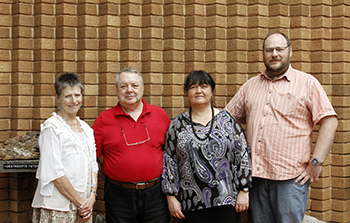Latest News Archive
Please select Category, Year, and then Month to display items
09 December 2020
|
Story UFS entral academic advising team
|
Photo Pixabay

It wasn’t easy, but we all got to this point because we stayed calm and made the effort to learn on even when it was difficult.
The University of the Free State (UFS) has remained committed to supporting you in every way possible, and as you prepare for the final assessments, remember to access the support tools you will need in order to successfully complete the 2020 academic year: https://www.ufs.ac.za/toolsforsuccess
Main exams are running from 30 November to 19 December 2020
All of the best, and break a pen in your upcoming final assessments. For those of you who will be graduating, we cannot wait to see you in that graduation attire; and those who still have some way to go, we cannot wait to serve you again in 2021 as we continue the pursuit of academic success!
Below are five main study tips that you can use for final assessment success:
1. Set a realistic study schedule
You might think that studying for eight hours straight for four days before the exam, will help you get through the work in time. See final edition of the #UFSLearnOn for more information.
2. Structure and organise your work
If your notes are organised, it is also easier for your brain to recall information, even when you become nervous during exams.
3. Practise with an old exam/semester test paper
Practice makes perfect, and although the final assessments might look different in how they are administered, it will still help to practise using old tests and exams.
4. Adapt your strategies to the content
What works for one module or even one learning outcome, might not be effective for another. You need to continually adapt your note-taking and study approaches. See #UFSLearnOn final edition for different study methods.
5. Healthy body, healthy mind
Your brain needs optimal care to perform at its best, and getting physically active (even if it is by jumping in one spot if space is limited) forces your body to release neurotransmitters responsible for positive emotions, which assist in retaining information in your memory …
Download the final edition of #UFSLearnOn that points you towards the resources you’ll need to ace your final assessments and end 2020 off on a high note!
Famous mineralogists visit UFS Geology
2017-04-25

From the left: Prof Marian Tredoux, Associate
Professor at the UFS Department of Geology;
Prof Giorgio Garuti; from the University of Leoben,
Dr Federica Zaccarini, also from the
University of Leoben and Dr Freddie Roelofse,
Head of the Department of Geology at the UFS.
Photo: Rulanzen Martin
Years of academic friendship and collaboration is what makes Prof Giorgio Garuti and Dr Federica Zaccarini return to the University of the Free State (UFS) every so often.
The world-renowned academic duo from the University of Leoben in Austria were guest lecturers at the UFS Department of Geology. “We are here because we have known Professor Marian Tredoux and the Geology Department, for a long time. We are really happy to be here, and to be given the opportunity to present talks,” said Dr Zaccarini. The two are experts in platinum-group element mineralogy and each has given their surname to minerals namely, the Garutiite and Zaccariniite minerals.
Visit great advantage for research
They are acclaimed experts on very small minerals (smaller than a hundredth of a millimetre) with emphasis on platinum group elements in chrome-rich rocks. “Their visit is a great advantage for us. We also conduct research on these minerals and can learn from them,” said Prof Marian Tredoux, affiliated researcher at the Department of Geology.
Dr Zaccarini gave a lecture on Chromitites, and associated platinum-group elements, in ophiolites on Wednesday 5 April 2017 and Dr Garuti presented a lecture on Uralian-Alaskan complexes: a puzzling source of platinum, on Thursday 6 April 2017. During the talks they examined the association of the platinum-group minerals with chromite, rather than sulphide, and how this association can lead to the formation of unusual platinum-group element ores.
Collaboration on various academic papers
They and Prof Tredoux have collaborated on various research articles over the past four years, which have been published in various important international scientific journals. “These journals play an important role in calculating the H-scale which measures how important a researcher’s work is on an international scale,” said Prof Tredoux.